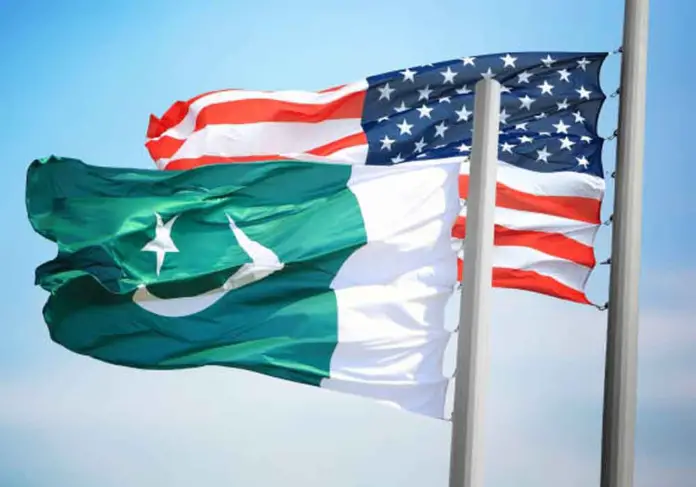The interests of Pakistan and the United States have rarely coincided, and oftentimes their objectives have differed. Even the way they understand problems and situations varies.
There is a term called “Stockholm Syndrome” which is used when a hostage develops a psychological connection with a captor during captivity. This term often fits aptly in Pakistan’s domestic politics where we have this connection with rulers who have been in power for decades and have delivered nothing, yet people admire them. The relationship between Pakistan and the United States is similar to that of a captive who has grown close to their captor.
While Pakistan has often said that it partnered with the United States in the fight against terrorism in Afghanistan as a frontline ally, it never made the decision to do so. Pakistan decided to enter the conflict as a result of American coercive diplomacy and Islamabad’s fears that if it declined, Washington may undermine Pakistan’s worries by promoting India’s participation and escalating its presence in Afghanistan.
Pakistan and the United States hardly have any common strategic or economic objectives; ties between them are also unbalanced. Ad hoc security considerations drove the partnership because both countries depended on one another.
The United States needed Pakistan to ensure its defense against the Soviet Union in the 1980s and to stop Osama Bin Laden and al-Qaeda in the 2000s; nevertheless, Pakistan saw an opportunity to capitalize on these ostensibly unfavorable conditions.
It is nonetheless important to note that the civilian leadership of Pakistan and the military can have small disagreements on this matter. The total economic harm and human costs of the game may bother the civilian leadership, but the military’s strategic goals may not be as worried when weighing the costs and rewards.
The United States has been caught up in the complicated strategic calculations of the Pakistani military’s stance in relation to the more general question of safeguarding its interests in Afghanistan. It would never have been a simple choice for the United States to completely leave or fully embrace Pakistan and its policies in the area, given Islamabad’s engagement in Afghanistan.
Pakistan unveiled a national security policy in 2021 that was seen as the first step toward a comprehensive and inclusive national security strategy. Any policy’s execution determines its viability. The NSP was established to shift Pakistan’s policy from geopolitics to geo-economics.
The NSP is now nothing more than a piece of paper that will be stored on an old bookshelf in the government building in Islamabad due to the lack of execution.
Even after adopting a well-documented policy, the disarray in Pakistan’s senior leadership was still evident. The war between Ukraine and Russia exposed the fundamental issues with the dominant state figures’ worldview once more.
The beginning of this instability occurred when the government at the time, with broad support, adopted a neutral stance during the Russian invasion of Ukraine, but the COAS later condemned Russia in a speech.
The foreign office initially referred to this as a conflict before switching to the term “invasion” and then making a series of clarifications.
Pakistan is also hesitant to give in to US pressure and just follows orders in order to avoid upsetting them due to China’s significant investment in Pakistan. Pakistan is in a state of disarray due to the difficulty in choosing a side and lacks a clear plan of action.
It should be noted that western nations have been hypocritical in advancing their agenda for better relations, even though Pakistan’s issue and its conflicted policies are extremely obvious. You become the issue if you do not view the world and western problems from their vision.
Developing nations have always been harmed by the desire for dominance and are unable to reject the superpower of the West.







